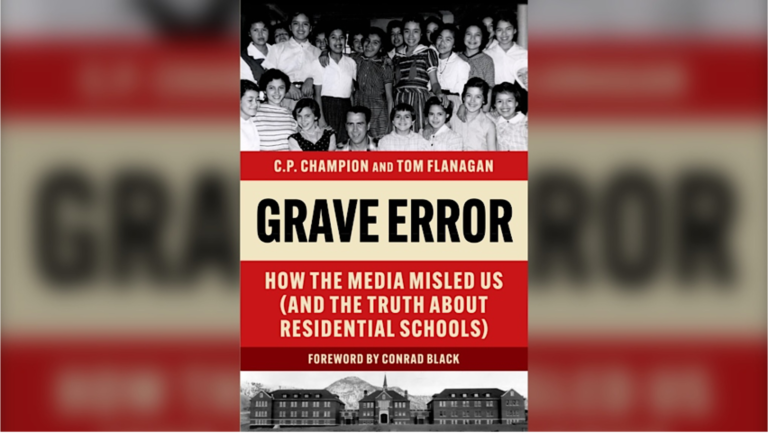Just over nine years ago, in early 2001, six Albertans signed a now-famous letter to then-Premier Ralph Klein. The authors included Stephen Harper and Ted Morton, both of whom went on to political offices of some distinction. The Alberta Agenda, or “firewall” letter as it became known, recommended five major initiatives. They were born out of frustration with the 2000 election campaign after federal Liberals used Alberta as the “whipping boy,” especially on health care.
As with any move that results from momentary passion, the initial firewall advice looked less desirable with the morning light. But even nine years later, many people still assert the proposals are desirable. The most recent example is how Alberta’s newest political party, the Wildrose Alliance, contains two firewall ideas in its platform: Alberta should collect its own provincial personal income tax and withdraw from the Canada Pension Plan (to set up an Alberta variety).
Three other firewall suggestions were to replace the RCMP with a provincial police force, take policy responsibility for health care (including foregoing federal funding if necessary), and force Senate reform back on to the national agenda.
Problems with the original “firewall” ideas
There were problems with at least three of the five ideas right from the start. For example, while Senate reform is desirable in theory, the trend to elected Senators might have some undesirable consequences. Imagine an unchanged but elected Senate where four Atlantic provinces with 2.3 million people have more elected Senators (30) than do four Western provinces with 10.5 million people (24). I have no magic bullet on Senate reform, but abolishing it rather than reinforcing the existing disparity with elections seems preferable.
On provincial personal income tax collection, the cost of creating a new bureaucracy to collect, process, hear appeals, deal with inquiries and audit tax forms has never been estimated by its proponents. When I looked into this several years ago, Alberta paid just $20,000 to Ottawa to have the federal government process provincial forms. When, in 2004, the Alberta government estimated the annual cost of duplicating what the federal government already does, the additional annual cost ranged between $71 million with 1,000 new staff (using Quebec’s administrative costs as a model) or $160 million and 2,000 new staff (using federal costs as a baseline).
Albertans file almost 1.9 million returns every year. The notion these filers will happily fill out not just a few additional provincial pages as they do now, but an entire, additional duplicate set of provincial forms for every federal piece of paper they now touch, and then deal with two bureaucracies on questions, appeals, differing notions of taxable income and the like, is fanciful.
As for the RCMP, the Solicitor General’s Office informs me Alberta pays $184 million for the RCMP, or 70 per cent of the cost. That means Ottawa’s bill is $78 million. There may be other reasons to move to a provincial police force, but on cost at least, the firewall folk have not yet made a convincing case.
On pensions, firewall proponents argued that because Alberta’s population is on average younger than the rest of the country the province could withdraw from the CPP and have lower contribution rates but similar benefits. Perhaps. But rare is the politician who, when given a discount on the cost of a program will lower taxes/pension contributions. It’s more likely vote-getting benefits will be increased. This is especially true when the cohort to soon gain from topped-up benefits — retirees or near retirees — vote in much greater numbers than do younger people.
The firewall crew’s strongest point was on resuming policy control over health care. This makes sense. However, in the present deficit environment and on the related point of foregoing federal cash if necessary, Alberta would not forgo $2 billion just to get creative on health care policy. However, in the medium-term, Alberta and every province should seek to end federal transfers in exchange for tax points. That would result in flexible, innovative provincial policy.
In general, one major complaint that animated the Alberta Agenda was that Alberta is massively short-changed in Confederation due to federal transfer programs. I agree. So why, until tax points are given up by Ottawa to such a degree that the disparity is greatly reduced, should Alberta take on the few bills Ottawa does pay — the cost of income tax collection and partial contributions to policing and health care? That would only increase the disparity.
In addition to the lack of defensible number-crunching (save perhaps on pensions), the original Alberta Agenda cited Quebec as an example to follow in four out of the five issues. That too would be a mistake. Instead, Alberta and the rest of the Western provinces should come up with a more realistic agenda, one which better positions the West and heightens its influence in Confederation.
A better Western agenda
When Stephen Harper and other Albertans created the Alberta Agenda letter to Ralph Klein nine years ago, the authors called on Albertans to “take greater charge of our own future.” As I detailed previously, as a general recommendation — Alberta and Ottawa should have complete and independent responsibility for constitutionally assigned areas of jurisdiction — the call made sense.
But many of the means proposed by the firewall folk were never the proper way to reach the end goal. If ever adopted, most Alberta Agenda ideas would be inconsequential at best, or costly policy failures at worst.
After all, suppose Alberta did have its own pension plan. How would this (or provincial police and income tax collection) make Ottawa and the other provinces change on matters of substance?
Canadians didn’t protest over a doubling of Canada Pension Plan premiums between 1997 and 2003. If Alberta withdrew from the federal plan, I doubt substantive federal change on an Alberta wish-list would result from slightly higher CPP premiums for other Canadians.
In informal conversations with some firewall folk over the years, the responses to my critiques have been varied. Some admitted this or that firewall idea was flawed, but the last defence has always been that Alberta needs more power vis-a-vis Ottawa.
A more powerful Alberta and West is a desirable end. There is a general lack of corruption in the West (compared, say, with Quebec politics), an entrepreneurial spirit both as it applies to business and environmental solutions, and a constant openness to new ideas and policies. All of this benefits the entire country. It’s an influence that should be heightened.
But for strengthened Western clout, another vision and another set of proposals are required and it starts with understanding what constitutes real power.
In a democracy, influence is wielded via population, voters and wealth. In the United States over the past half-century, the South and the West counted for much in national politics and not because Texas, California and Florida possessed their own pension plans or flirted with other, useless symbols of imagined, but not real power. Those states mattered because of their population and wealth.
In Western Canada, a larger population and more seats in Parliament is a long-term project. But there are measures Alberta can take that would lead to a richer and more populated province, and also serve as examples to be copied. Insofar as other western provinces enact such measures, they too would only boost the region’s influence within Confederation.
Consider some examples. First, Alberta could help restore a clear division between Ottawa and the provinces by picking one transfer (as a start), and press Ottawa to give up federal tax room to all provinces in exchange for an end to that federal subsidy. Health or social transfers are obvious first candidates.
Given that two original firewall authors are now in a position to do something here — Stephen Harper occupies 24 Sussex and Ted Morton runs the Alberta Finance file — the only problem might be that some provinces prefer continued cash rather than extra tax room. It’s easier for premiers to blame Ottawa for not giving out enough money than to be directly accountable to voters for their own provincial taxing and spending.
But if Alberta and a few other provinces press for this reform, it has potential.
Second, on health care, Alberta should introduce health-care savings accounts as suggested to the Alberta government years ago by Don Mazankowski in his provincial report. The demographics of an aging population need to be dealt with; also, such accounts have the potential to transform health-care finance and delivery in positive ways.
Third, Alberta should streamline government by ending long-term obligations for any new public-sector employees. The province should imitate the private sector where most companies provide pensions for employees through matching defined contributions, not defined benefits. The latter approach unwisely promises future unsustainable GM-type, legacy benefits at the expense of taxpayers; it also promotes an earlier retirement age than is possible in the private sector.
Fourth, Alberta will collect $3.8 billion in corporate income tax this year. Once the province returns to a surplus position, the province should slash the business tax take in half. That will lead to more investment and then more people in Alberta.
There is more that can be done. But the political ramifications of these wealth-and-population-boosting policies for Alberta and other western provinces are more voters and more federal ridings over time. Moreover, on policy innovation, Alberta’s “magnet-status” would mean other provinces must imitate us or decline in relative terms. Either way, Alberta wins.
In short, a useful and updated Alberta Agenda is one that increases Alberta and western power in real ways, both by policy example and that also lead to real increases in western wealth, population, voters and, eventually, more seats in Parliament.






